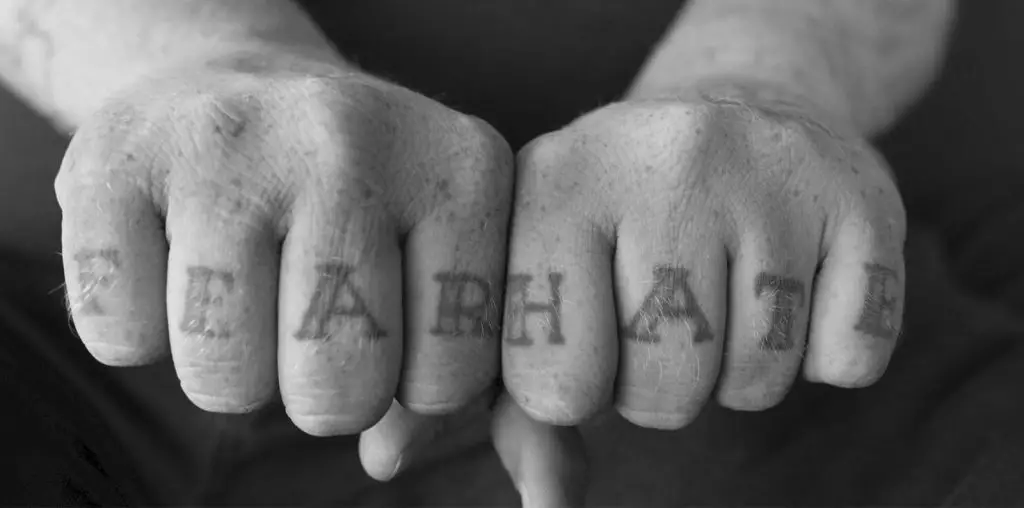
A darker, dirtier vision of Britain than the fascism-friendly caricature “V for Vendetta,” “Children of Men” heaps on the world on the verge of self-destruction, complete with refugee/concentration camps, activists/terrorists and just a slim glimmer of hope.
The story takes place in London in the year 2027, 18 years after the last child was born. Due to a disease that swept the globe, women have been struck infertile, and the world is aging into oblivion. On top of that, since the infertility began in 2009, nuclear wars have been fought, and major cities such as New York and Tokyo have become the victims of nuclear terrorist attacks. The British government, in an effort to protect itself and close ranks, as it were, closes Britain’s borders, rounding up any illegal immigrants, many created due to the recent wars, and putting them in refugee/concentration camps. The result is a police-state, but also the only world nation still functioning successfully. Cue Theo Faron (Clive Owen), a bureaucrat at the Ministry of Energy, who gets recruited by his ex-girlfriend (Julianne Moore) to escort a young woman (Claire-Hope Ashitey) across Britain for her activist/terrorist organization, because he’s the only one who can secure necessary transfer papers for free travel. This young woman has special value, of course, as she’s pregnant.
Alfonso Cuarón creates an apolocalyptic world similar in look to that of “28 Day’s Later,” with the cities as clinical and heartless safe havens (somewhat) for a dying human race, while the wilderness is where humanity has truly broken down, with roving gangs of people looking to strike back at a world that’s waiting for them to die off. And if you’re not in the woods or the city, chances are you’re in the hellish world of the refugee camps, which are one part torture-center and one part bombed-out ghetto.
Beyond creating this brilliant vision of world’s end, Cuarón’s cinematic style places you right in the heart of it, often running long, single takes over the shoulders of his characters, with you along for the first-person ride. In fact, there are two single-take sequences in this film that are phenomenal beyond belief, and worth viewing multiple times. The problem with the film, despite the genius of craftmanship and cinematography, is that the film doesn’t really have anything new to say.
As far as a statement on Britain’s refugee problem, and the government’s mistreatment of the situation (an escalation of its policies today), the film pales in comparison to a film like “Dirty Pretty Things” (also starring Chiwetel Ejiofor). And what is Cuarón trying to say about an infertile world? That it would be unruly? The film also fails to explain what’s really going in this activist vs. government subplot, why the activists are fighting in the first place (beyond refugee rights). Sure, you can understand how having the first baby born in 18 years amidst your side can seem like a brilliant image, but what would it really accomplish? The government is wrong, the activists had a baby to prove it? And the activists are anything but gentle protesters fighting for a better life, they’re bombing cafes, murderering people in cold blood… it’s hard to sympathize with a cause when the actions are violent and seemingly without any real philosophy behind them (at least that the film fills us in on).
In addition, the end goal of the film is to get pregnant girl at point A to a special group called the Human Project at point B. But no one really explains why that’s so important, what the Human Project is supposed to do with her. Study the child? Study the mother? Create a cure? In a world in chaos, getting her out of the only nation still surviving to outer uncertainty doesn’t seem like the best bet. And why wouldn’t the government help her out, does the human race really want to die out? As the film shows early on, the value of a young life is akin to being crowned King or Queen of the Universe, so a new baby is likely to become the most protected human on the face of the Earth. But instead, the film lurks around, putting mother and unborn baby in jeopardy at every turn.
On top of the confusion of what anyone is really fighting for in the film, or why they’re doing anything the way they seem Hell-bent on doing it, there aren’t any real surprises. You can pretty much predict immediately who’s going to wind up betraying who, who’s going to wind up dying… the only thing really left to question is whether Cuarón is going to go for a more uplifting ending, or a darker one. And in the end, what would it mean regardless?
As far as the acting goes, there aren’t any revelations. Clive Owen plays the troubled protector well, and Chiwetel Ejiofor is solid as the activist/terrorist who is obviously torn between doing the right thing and doing the violent, revolutionary thing. Michael Caine’s Jasper, a weed-growing friend of Theo, is the only performance close to being painful, as his usage of “amigo” just gets plain annoying after the first six times.
Overall, though it sounds like I’m slagging the film, “Children of Men” is worth seeing, if for no other reason than the gorgeous vision of the end of the world Cuarón has crafted and, as mentioned earlier, some of the most unreal single-take action sequences ever committed to screen. As a visual feast, it’s a wonderful experience, but it doesn’t say anything particularly spectacular and it most likely won’t change the way you feel about terrorists, police states or Britain.
